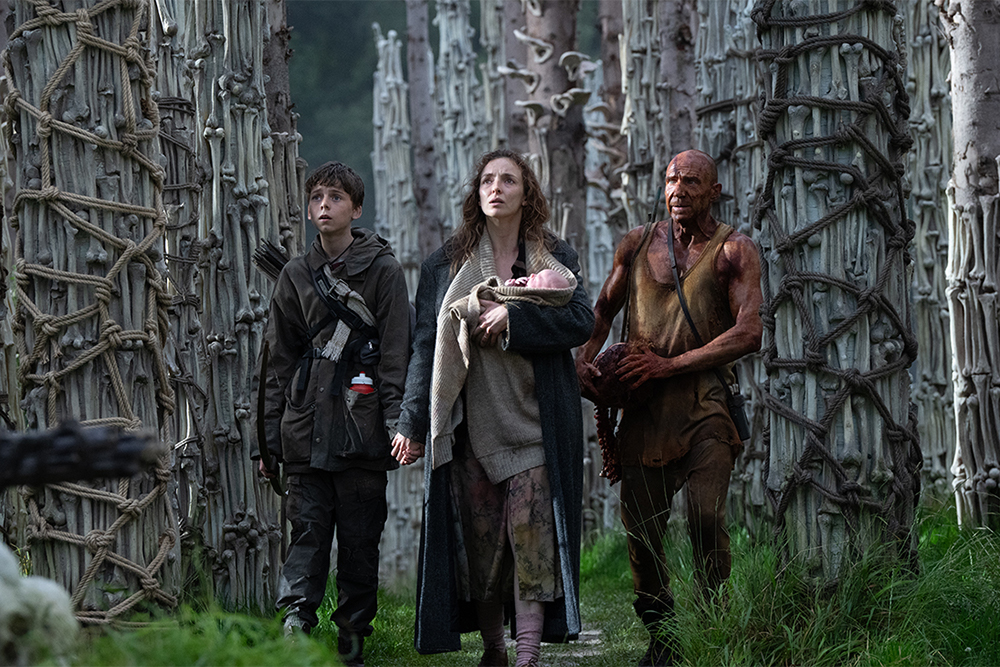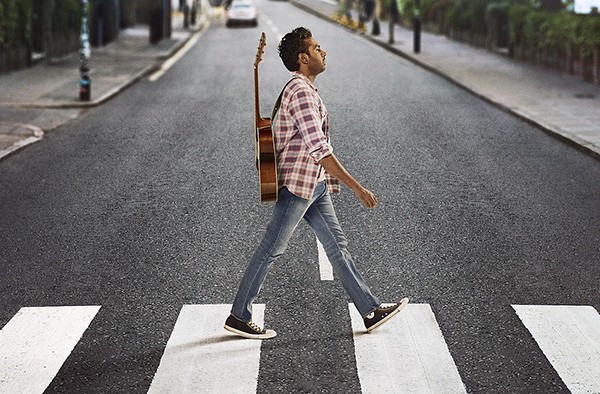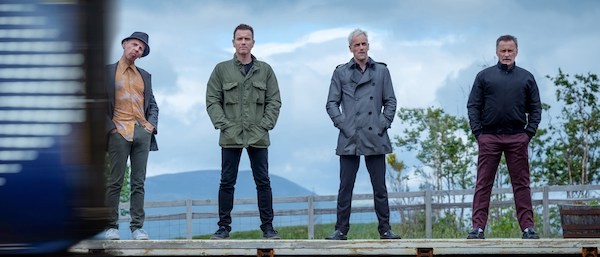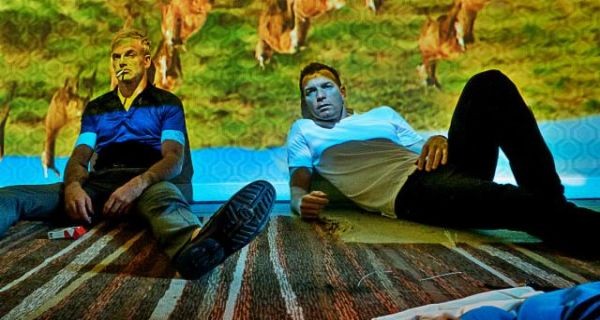George Romero invented the modern zombie film starting in 1968 with Night of the Living Dead. There had been zombie-themed horror films in the 1930s and ’40s, like White Zombie and I Walked with a Zombie, but they had been focused on the Haitian Vodou roots of the zombie myth, filtered through the era’s ubiquitous racism.
Night of the Living Dead is not about a witch doctor using magic to control a white woman. In Romero’s vision, an unknown cosmic force reanimates “the unburied dead” who kill and eat the living. The word “zombie” is never uttered in the film; Romero and co-writer John Russo called them “ghouls.” But by the time Romero filmed the sequel, 1978’s Dawn of the Dead, they were zombies, and his vision had replaced the original meaning of the word.
The 21st century has seen a huge surge in zombie media. (How many seasons did The Walking Dead and its spinoffs run? Too many!) The zombie renaissance started in 2002 with 28 Days Later. Written by Alex Garland and directed by Danny Boyle, it captured the imagination with its opening sequence where Jim (Cillian Murphy) awakens from a coma and wanders through an empty London. While Romero’s zombies were shambling corpses who were easy to avoid but hard to escape, Boyle and Garland’s zombies were very fast and very mean — and not, technically speaking, dead. The highly infectious rage virus destroyed the thinking parts of the brain while amping up the victim’s fear and violence.
Shot in the early days of digital, 28 Days Later was an early example of chaos cinema. Liberated from the cost of film stock, Boyle shot his action sequences handheld with lots of coverage, then jammed the whole thing together in the editing room, creating excitement out of the combination of shaky cam and quick cuts. It was a big factor in the film’s success and, along with The Bourne Identity, inspired a decade’s worth of disorienting and often sloppy action.
The 2007 sequel, 28 Weeks Later, was produced by an entirely different team. Now, after a decade in development hell, Garland and Boyle have returned to zombieland with 28 Years Later. At the end of the last film, the rage virus had spread to Paris. But apparently, the Europeans had more luck combatting the zombies than the British did. Now, Britannia is a total quarantine zone. Anything that gets out is shot on sight by EU patrols, and if you go in, you’re on your own.
That’s not only EU policy; it’s also how they do things at Lindisfarne, an island off the Scottish coast connected to the mainland by a causeway which is only passable at low tide. That’s where 12-year-old Spike (Alfie Williams) lives with his father Jamie (Aaron Taylor-Johnson) and mother Isla (Jodie Comer). The survivors’ commune is pretty well protected by fortifications both natural and manmade, but they have virtually zero connection to the outside world. Isla is sick with an unknown ailment which leaves her confused and weak. When Jamie decides it’s time for 12-year-old Spike to come of age by killing his first zombie with a bow and arrow, Isla is terrified she’ll never see her son again. But she quickly forgets, and Spike reassures her he’s just going to school. The townsfolk give them a big sendoff, but not before the commune’s matriarch (Stella Gonet) reminds them, “No rescues. No exceptions.”
Once on the mainland, Spike and Jamie loot houses that have been already picked over. In the forest, Jamie finds an obese rage zombie crawling on the ground eating worms. He goads a shaking Spike into putting an arrow in its jugular — and almost misses the second zombie sneaking up behind them. As they traipse through the ruined uplands, they attract the attention of an Alpha zombie (Chi Lewis-Parry). It seems that when some people are infected by the virus, their pituitary gland goes into overdrive, and they grow much larger and smarter than normal zombies. Since the ragers are mostly naked, we see that ALL of the Alpha’s bodily appendages have grown much larger than normal.
While hiding in an attic from the Alpha and his minions, Spike sees a fire on the horizon. Jamie believes it belongs to Dr. Ian Kelson (Ralph Fiennes), another survivor whom the Lindisfarne folks believe has gone stark raving mad. But what Spike hears is “doctor.” The commune hasn’t had a physician in years, and he’s hopeful that a real MD could cure his mother’s mysterious disease. When they finally make it back to their island, Spike makes a plan to escape to Dr. Kelson’s with Isla in tow. But what chance does a 12-year-old and a sickly dementia patient have in a Scotland swarming with zombies?
The most surprising thing about 28 Years Later is how retro it is. Boyle and cinematographer Anthony Dod Mantle shot the bulk of the movie on an iPhone 15 Pro Max — a much more advanced camera than the Canon XL1 they used on 28 Days Later. The edit is a blast of full frontal chaos cinema, circa 2003. The inhabitants of the British Isles have been reduced to a medieval state, while their European neighbors across the channel enjoy iPhones and cosmetic surgery. Editor Jon Harris gets the point across by intercutting Spike’s longbow practice sessions with scenes from Laurence Olivier’s wartime masterpiece Henry V. If you liked Natural Born Killers for the editing, this film is for you.
But if you’re not into being pummeled by a W-era digital image flood, you might come away from 28 Years Later with a headache. Let’s just say the post-screening conversation in the Malco Studio on the Square men’s room grew quite heated.
I was on the “pro” side of the argument. Boyle and Garland are all out of fucks to give, and I found their big swings exhilarating. At age 14, Alfie Williams is already a breakout talent; he and Jodi Corner are grounding presences amidst the chaos. Then Ralph Fiennes shows up painted red from head to toe, looking like things have gotten out of hand at the Grand Budapest Hotel. The British Isles isolated from the European Union, crawling with infected people who are too stupefied to help themselves, feels eerily familiar in our post-Brexit, post-Covid world, and that’s no coincidence. As George Romero taught us, the real villains are always the humans.
28 Years Later
Now playing
Multiple locations



